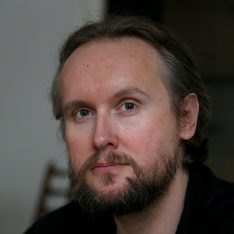
dr Jan Lorenz
Assistant Professor, Section of Social Anthropology
Room: 2.29/2.46
Phone: 61 829 13 81
E-mail: jan.lorenz@amu.edu.pl
Office hours:
Monday, 11:00-12:00
please contact beforehand
- religion
- ethics
- subjectivity and self-formation
- science, technology and society (artificial intelligence, robots and automatons),
- senses and materiality
- belonging and relatedness
- visual anthropology
- art
Publications
Lorenz, J. (2025) Film Theory and Ethnographic Filmmaking. In: P. Vannini (ed.) The Routledge International Handbook of Ethnographic Film and Video (pp. 52-61). Abingdon, Oxon: Routledge.
Goldstein, P., & Lorenz, J. (2025). Active (Citizen) – Can Anyone Be an Activist? In: M. Le Calvé, P. Beck, & R. Stock (eds.), Drift. Sink. Emerge. Repeat. Diffracting the Critical through Multimodal Submersion: A Catalogue to the STS HUB 2025 Exhibition. https://doi.org/10.21428/b49345f3.8775d7ad
Lorenz, J. (2025), Consequential relatives: religious transformation and kinship in Polish conversions to Judaism. Journal of the Royal Anthropological Institute. https://doi.org/10.1111/1467-9655.14307
Lorenz, J. (2025). Metafizyczna obecność i pustka mechanicznego ciała. Android Kannon w świątyni rinzai zen. The Religious Studies Review, 295 (1), 77-96.
Lorenz, J. (2023). Kenkyū happyō. Kyūdai Tamaya Shōbei Kōenkai no Kaihō, 17, 2-3.
Lorenz, J. (2021). Tactics of Transformation: Self-formation and the Multiplicity of Authority in Polish Conversions to Judaism. In: M. Clarke, E. Morgan (eds.) Rules and Ethics: Global perspectives from anthropology and history (pp. 169-189). Manchester: Manchester University Press.
Lorenz, J. (2021). „The sound exists only in your own body”. Sensory approximation of visual and aural impairment in media art projects. Visual Anthropology, 34 (1), 35-53.
Lorenz, J. (2021). Being and Becoming. Polish Conversions to Judaism and the Dynamics of Affiliation. In: F. Guesnet, A. Polonsky, A. Rapoport-Albert & M. Wodziński (eds.) Polin: Studies in Polish Jewry Vol. 33: Jewish Religious Life in Poland since 1750 (pp. 425-437), Liverpool: Liverpool University Press.
Lorenz, J. (2018). Belief. In: J. Jackson (ed.) Oxford Bibliographies in Anthropology. New York: Oxford University Press. DOI: 10.1093/OBO/9780199766567-0190
Lorenz, J. (2016). Polish newcomers to Jewishness: A reflection in the wake of the revival. In: N. Fisher, T. Parfitt (eds.) Becoming Jewish: New Jews and Emerging Jewish Communities in a Globalized World (pp. 167-184). Newcastle upon Tyne: Cambridge Scholars Publishing.
Lorenz, J. (2016). Shades of closeness. Ontologies of belonging and becoming in a contemporary Jewish Community in Poland. In: M. Diemling, L. Ray (eds.) Boundaries, Identity and Belonging in Modern Judaism (pp. 63–75). Abingdon, Oxon: Routledge.
Lorenz, J. (2015). Counting as one. Moral encounters and criteria of affinity in Polish Jewish congregation. HAU: Journal of Ethnographic Theory 5(2), 51-81.
Lorenz J. (2011). Życie w miejscu śmierci. Muzeum/Obóz Stutthof w świetle doświadczenia I percepcji jego współczesnych mieszkańców. In Sztutowo czy Stutthof. In: Ł. Banaszek, M. Wosińska (eds.) Oswajanie krajobrazu kulturowego (pp. 173–187). Sztutowo: Muzeum Stutthof w Sztutowie.
Lorenz, J. (2007). Blizny od gwoździ. Haitański zombie jako idiom kulturowy i metafora traumy. Kultura i Społeczeństwo 51(4), 101–117.
Ethnographic films
Lorenz, J. (2023). Typhoon season. Adam Mickiewicz University.
Goldstein, P. & Lorenz, J. (2019). Active (citizen). Zentrum für Osteuropa- und internationale Studien.
- Award: Best Short Documentary, Capital Filmmakers Festival Berlin 2021
- Award: Best Environmental Film, Jahorina Film Festival 2021
- Award: Special Prize, Green Montenegro International Film Festival 2021
Lorenz, J. (2014). Passage. Granada Centre for Visual Anthropology, University of Manchester.
Lorenz, J. (2009). Star. Granada Centre for Visual Anthropology, University of Manchester.
Audiovisual instalations
Goldstein P., Lorenz J. (2022). Active (citizen) – Can anyone be an activist? Multiscreen installation. Zentrum für Osteuropa- und internationale Studien.
Permanent exhibition: Zentrum für Osteuropa- und internationale Studien, Berlin.
Temporary exhibition: STS Hub 2025 Berlin “Diffracting the Critical through Multimodal Submersions” (11-14.03.2025)
2022 Robots and automatons in Buddhist and Shintoist religious practice in contemporary Japan, research project, Adam Mickiewicz University. 1.09.2022 – 31.03.2023
2017, A co-investigator in the “Visualising the Invisible: Using visual ethnography to explore extra-institutional activism of migrants and ethnic minorities” visual anthropology project funded by British Academy/Leverhulme (with Dr Piotr Goldstein (PI), University of Manchester)
2014, Becoming Oneself, Becoming Another: Conversion to Judaism in contemporary Poland. Postdoctoral Fellowship, Centre for Jewish Studies, University of Manchester
2013, Informal Jewish education in Poland and creative practice with visual media, Centre for East European Language–Based Area Studies Research Internship (participatory video project and film workshop)
2008, “Relentless dybbuk. The loss, the memory and the revival of Jewish life in post-socialist Poland” Doctoral Fellowship

